คําศัพท์Adjective
In the Thai language, adjectives play a crucial role in describing nouns and providing additional information about their characteristics. By using adjectives, we can express a wide range of qualities, states, and attributes.
To expand your vocabulary, here is a list of 1,000 common adjectives in Thai along with their translations:
1. น่ารัก (nâa rák) – cute
2. สวย (sŭai) – beautiful
3. สุดยอด (sùt-yàwd) – excellent
4. เก่ง (gèng) – clever
5. ถูกต้อง (tùuk-tâwng) – correct
6. รวดเร็ว (ruat-rêo) – fast
7. อดทน (òt-ton) – patient
8. สุขุม (sù-kùm) – happy
9. อ่อนโยน (òn-yohn) – gentle
10. อัธยาศัย (àt-yaa-săi) – polite
11. อ่อนน้อม (òn-nóm) – submissive
12. เสียว (sĭao) – naughty
13. เฉลียวฉลาด (chă-lǐaw-chă-làat) – smart
14. กรุณา (gà-roo-năa) – kind
15. ฉลาด (chă-làat) – intelligent
16. เข้าใจง่าย (kâo-jai-ngâai) – easy to understand
17. อ่อนโยน (òn-yohn) – tender
18. น่าเชื่อถือ (nâa chêu-tǔe) – trustworthy
19. เกียจคร้าน (gìat-krâan) – lazy
20. ขยันหมายความ (kàyăn-măai-kwăam) – diligent
This is just a small sample of the vast selection of adjectives available in Thai. The list goes on and on, giving you countless ways to describe and express various qualities and characteristics.
คํา adjective บอกลักษณะ (Adjectives Describing Characteristics)
Adjectives are used to describe and provide more details about the characteristics of a noun. Here are a few adjectives commonly used for describing different characteristics:
1. ยาว (yao) – long
2. สั้น (sân) – short
3. ใหญ่ (yài) – big
4. เล็ก (lêk) – small
5. แรง (raeng) – strong
6. อ่อน (òn) – weak
7. เร็ว (rêo) – fast
8. ช้า (chá) – slow
9. สว่าง (sà-wâang) – bright
10. มืด (mêud) – dark
11. ห่าง (hâang) – far
12. ใกล้ (glâi) – near
13. ย่อ (yòr) – short (in height)
14. ไกล (glai) – distant
15. ร้อน (rón) – hot
16. เย็น (yen) – cool
17. อบอุ่น (òp òon) – warm
18. เย็นสบาย (yen-sà-baai) – refreshing
19. หนา (năa) – thick
20. บาง (baang) – thin
Adjectives can be used to describe physical attributes, colors, sizes, shapes, and much more, allowing speakers to be more precise and vivid in their communications.
Adjective Modifier Words (คําศัพท์ขยายคำคุณภาพ)
In Thai, adjective modifier words are used to enhance or intensify the meaning of an adjective. These words often precede the adjective and provide additional information. Some common adjective modifier words in Thai include:
1. มาก (mâak) – very
2. สุด (sùt) – extremely
3. อย่าง (yàang) – like
4. แค่ (kâae) – only
5. เลย (looei) – too
6. มากพอๆ กับ (mâak-por-por-gàp) – almost
7. ที่สุด (tîi-sùt) – most
8. น้อย (náaw-y) – little
9. อย่างมาก (yàang-mâak) – very much
10. มากที่สุด (mâak-tîi-sùt) – the most
Using these modifier words can add emphasis or clarify the degree of an adjective, helping to convey specific meanings and intensify the overall message.
การเปรียบเทียบคุณสมบัติ (Comparative Adjectives)
Comparative adjectives are used to compare the characteristics of two or more objects or entities. In Thai, comparative adjectives are formed by adding the word “กว่า” (gwàa) after the adjective. Here are some examples:
1. สูง (sŭung) – tall
– สูงกว่า (sŭung gwàa) – taller
2. ง่าย (ngâai) – easy
– ง่ายกว่า (ngâai gwàa) – easier
3. แพง (paeng) – expensive
– แพงกว่า (paeng gwàa) – more expensive
4. ดี (dii) – good
– ดีกว่า (dii gwàa) – better
5. น้อย (náaw-y) – little
– น้อยกว่า (náaw-y gwàa) – less
6. เร็ว (rêo) – fast
– เร็วกว่า (rêo gwàa) – faster
Comparative adjectives allow us to express the degree of difference between two things or individuals, providing a clearer understanding of their comparative attributes.
การเพิ่มคุณสมบัติ (Superlative Adjectives)
Superlative adjectives are used to express the highest degree of a particular characteristic or quality. In Thai, superlative adjectives are formed by adding the word “ที่สุด” (tîi-sùt) after the adjective. Here are some examples:
1. สูง (sŭung) – tall
– สูงที่สุด (sŭung tîi-sùt) – the tallest
2. ง่าย (ngâai) – easy
– ง่ายที่สุด (ngâai tîi-sùt) – the easiest
3. แพง (paeng) – expensive
– แพงที่สุด (paeng tîi-sùt) – the most expensive
4. ดี (dii) – good
– ดีที่สุด (dii tîi-sùt) – the best
5. น้อย (náaw-y) – little
– น้อยที่สุด (náaw-y tîi-sùt) – the least
6. เร็ว (rêo) – fast
– เร็วที่สุด (rêo tîi-sùt) – the fastest
Superlative adjectives help us identify the most extreme qualities and compare them to others, indicating the highest or lowest level of a specific characteristic.
คำคุณภาพที่เป็นคำกริยา (Adjective Verbs)
In Thai, some adjectives can also function as verbs. These adjectives describe actions, behaviors, or states. Here are a few examples:
1. ชอบ (chôrp) – to like
– เขาชอบดนตรี (khăo chôrp dôn-dtrii) – He/She likes music.
2. กล้า (glâa) – to dare
– เธอกล้าทำสิ่งที่ไม่คิดว่าจะทำได้ (ter glâa tam sìng tîi mâi kít wâa ja tam-dâi) – She dares to do something she didn’t think she could.
3. อบอิ่ม (òp-ìm) – to feel full
– เด็กกินได้เต็มที่และรู้สึกอบอิ่ม (dek gin-dâi tem-thîi láe rúu-sûek òp-ìm) – The child eats to their heart’s content and feels full.
4. ทุกข์ (thúk) – to be sad
– เธอรู้สึกทุกข์ (ter rúu-sûek thúk) – She feels sad.
5. ดี (dii) – to be good
– เขาได้ประทานการศึกษาที่ดี (khăo dâai-bprà-taan gaan-sèuk-săa tîi dii) – He/She receives a good education.
คำสรรพนามที่เสริมคุณสมบัติ (Adjective Pronouns)
Adjective pronouns are used to refer to or replace nouns and provide additional information about their qualities. Here are a few examples:
1. คน (khon) – person/people
– คนที่โดดเด่นมาก (khon tîi dôt-dèn mâak) – the person/people who are outstanding
2. สิ่ง (sìng) – thing/things
– สิ่งที่ทำให้มันสวยงาม (sìng tîi tam-hâi man sŭay-ngăam) – the thing/things that make it beautiful
3. น้อง (nóng) – younger sibling
– น้องที่น่ารัก (nóng tîi nâa rák) – the younger sibling(s) who is cute
4. ทีม (teem) – team/teams
– ทีมที่เป็นฝ่ายชนะ (teem tîi bpen fày chá-ná) – the team/teams that win
5. ข้าพเจ้า (kâa-pâ-jâo) – I/myself
– ข้าพเจ้าที่มีความรับผิดชอบ (kâa-pâ-jâo tîi mii-kwăam ráp-pìd-châaw-bp) – I/myself who are responsible
คำคุณภาพแบบกริยาหรือดำเนินการ (Action Adjectives)
Action adjectives in Thai are words that describe an ongoing or temporary action or behavior. Here are a few examples:
1. กวน (gùan) – to disturb
– เขาไม่ควรกวนคนอื่น (khăo mâi kuan khon ùuen) – He/She should not disturb others.
2. สงบ (sŏng-bòp) – to calm down
– เมื่อเขาพูดใหญ่เกินไปควรให้เขาสงบลง (mêua khăo pôot yài-gern-bpai kwan hâi khăo sŏng-bòp long) – When he/she speaks too loudly, he/she should calm down.
3. รักษา (rák-săa) – to maintain
– เราควรรักษาสิ่งที่ได้รับและทำให้มันดีขึ้น (rao kwan rák-săa sìng tîi dâi ráp láe tam-hâi man dii kêun) – We should maintain what we have and make it even better.
4. ทำ (tam) – to do
– เขาทำงานให้สำเร็จตามเป้าหมาย (khăo tam-ngaan hâi sǎm-rèt dtaam bpâo-maai) – He/She works to achieve the goal.
5. แจ้ง (cháeng) – to notify
– โปรดแจ้งให้ฉันทราบเมื่อคุณพร้อมแล้ว (bpòot cháeng hâi chăn sàa-b mêua khun prâwm láew) – Please notify me when you are ready.
These action adjectives describe behaviors or actions that are taking place at a given time, providing a more dynamic and detailed description.
คำคุณภาพที่ใช้เพื่อเปลี่ยนแปลงคำคุณภาพอื่น (Adjective Changing Words)
Adjective changing words are used in Thai to modify or change the meaning of another adjective. Here are a few examples:
1. มากับ (mâak-gàp) – together with
– สิ่งที่สวยมากับความสง่างาม (sìng tîi sŭai mâak-gàp kwăam sngâa-ngăam) – something that is beautiful together with elegance
2. ทั้งหมด (táng-mòt) – all
– เขาชอบทั้งหมด (khăo chôrp táng-mòt) – He/She likes all of them.
3. จำนวนมาก (jam-nuan-mâak) – a large number of
– มีนักเรียนจำนวนมาก (mee nák-riian jam-nuan-mâak) – There are a large number of students.
4. ที่สำคัญ (tîi sǎm-khan) – important
– สิ่งที่ทำให้สำคัญยิ่งขึ้น (sìng tîi tam-hâi sǎm-khan yîng kêun) – Something that makes it even more important.
5. เป็นเอกลักษณ์ (bpen èk-làk
Adjectives 100 คำที่ใช้บ่อยที่สุด
คำสำคัญที่ผู้ใช้ค้นหา: คําศัพท์adjective คําศัพท์ adjective พร้อมคําแปล, adjective 1 000 คํา, คํา adjective บอกลักษณะ, Adjective, คําศัพท์adjective เกี่ยวกับอารมณ์, คําคุณศัพท์ อังกฤษ, คําคุณศัพท์ คือ, adjective มีอะไรบ้าง
รูปภาพที่เกี่ยวข้องกับหัวข้อ คําศัพท์adjective

หมวดหมู่: Top 55 คําศัพท์Adjective
ดูเพิ่มเติมที่นี่: phauthuatdoncam.net
คําศัพท์ Adjective พร้อมคําแปล
Adjectives are an important part of any language, as they allow us to accurately describe and convey information about people, objects, and situations. In the Thai language, adjectives are equally significant and play a crucial role in communication. In this article, we will explore a wide range of common adjectives in Thai, along with their translations, to help you expand your vocabulary and improve your language skills.
1. สวย (sǔai) – Beautiful
This adjective is used to describe something or someone that is visually attractive or pleasing. For example, คุณสวยมาก (Khun sǔai mâak) means “You are very beautiful.”
2. เก่ง (gèng) – Skilled
When you want to describe someone who is proficient or skilled at a particular task, you can use this adjective. For instance, เขาเก่งที่การแสดง (Khǎo gèng tîi gaan sà-dǎng) means “He is skilled at acting.”
3. อร่อย (à-ròi) – Delicious
If you want to express that something tastes good, you can use this adjective. For example, อาหารนี้อร่อยมาก (Ā-hǎan née à-ròi mâak) translates to “This food is delicious.”
4. คล่องตัว (klǒrng dtua) – Flexible
To describe someone who is physically flexible or agile, you can use this adjective. For instance, เธอไม่คล่องตัวเท่าไหร่ (Thǔe mâi klǒrng dtua tâo rài) means “She is not as flexible as she used to be.”
5. มีเสน่ห์ (mii sèn-hà) – Charming
When you want to describe someone who has a captivating or charming personality, you can use this adjective. For example, เธอมีเสน่ห์มาก (Thǔe mii sèn-hà mâak) translates to “She is very charming.”
6. สง่า (sǒng-gà) – Elegant
To describe someone or something that displays elegance or sophistication, you can use this adjective. For instance, งานแต่งงานของเขามีความสง่า (Ngāan tàeng-ngān khǎwng khǎo mii kwaam sǒng-gà) means “His wedding ceremony was elegant.”
7. แย่ (yâe) – Bad
When you want to describe something that is of poor quality, unpleasant, or unfortunate, you can use this adjective. For example, อากาศวันนี้แย่ (Ā-gàat wan née yâe) translates to “The weather today is bad.”
8. ปลอดภัย (plòt-pai) – Safe
This adjective is used to describe a situation or place that is secure or free from danger. For instance, คอนโดนี้มีความปลอดภัยสูง (Khondo née mii kwaam plòt-pai sǔng) means “This condominium is very safe.”
9. ขม (khǒm) – Bitter
When you want to describe a taste that is bitter, you can use this adjective. For example, ช็อกโกแลตนี้ขม (Chôk-kô-læt née khǒm) translates to “This chocolate is bitter.”
10. อบอุ่น (òp-ùn) – Cozy
To describe a warm and comfortable environment, you can use this adjective. For instance, บ้านของเขาที่มีการตกแต่งเด็ก ๆ สร้างความอบอุ่น (Baan khǎwng khǎo tîi mii gaan dtohk-tàeng dèk dèk sârng kwaam òp-ùn) means “His house, with its child-like decorations, creates a cozy atmosphere.”
FAQs (Frequently Asked Questions):
1. How do I use adjectives in Thai sentences?
In Thai, adjectives generally follow the noun they describe. For example, บ้านสวย (Baan sǔai) translates to “beautiful house.”
2. Are there any differences in the use of adjectives in formal and informal Thai?
No, the use of adjectives remains the same in both formal and informal Thai language.
3. Can you provide more examples of adjectives in Thai?
Certainly! Here are a few more adjectives with translations:
– สูง (sǔung) – Tall
– น่ารัก (nâa-rák) – Cute
– เนียน (nǐan) – Smooth
– ร้อน (ráawn) – Hot
4. Are there any irregular adjectives in Thai?
No, adjectives in Thai language are generally regular and do not undergo any changes in form.
5. Can adjectives be used in comparative or superlative forms?
Yes, adjectives in Thai can be modified to indicate comparative or superlative forms by using additional words such as มาก (mâak) for comparative (more) and ที่สุด (tîi sùt) for superlative (the most).
In conclusion, adjectives in the Thai language allow us to accurately describe people, objects, and situations. By learning common adjectives and their translations, you can greatly expand your vocabulary and improve your ability to express yourself in Thai. So, start using these adjectives in your daily conversations and enjoy the beauty of the Thai language.
Adjective 1 000 คํา
In the beautiful and melodic Thai language, adjectives play a crucial role in expressing emotions, describing people, places, and things, and painting vivid pictures in our minds. One remarkable aspect of the Thai language is the vast number of adjectives at our disposal. In this article, we will delve into the enchanting world of adjectives 1,000 คํา, exploring their significance, usage, and answering some frequently asked questions.
The Significance of Adjectives 1,000 คํา
Adjectives 1,000 คํา, or commonly referred to as 1,000 adjectives, consist of an extensive collection of descriptive words in the Thai language. These adjectives are carefully chosen to embody a wide range of emotions, characteristics, and qualities. Their significance lies in their ability to breathe life into our conversations, adding depth and nuance to our descriptions. Adjectives 1,000 คํา contribute greatly to the richness and expressiveness of the Thai language, elevating it to be one of the most vibrant languages in the world.
Usage of Adjectives 1,000 คํา
The extensive use of adjectives 1,000 คํา in the Thai language allows for a more precise and elaborate description of people, places, and things. When incorporated into sentences, these adjectives help convey the speaker’s emotions and add layers of meaning to their words.
When describing a person using adjectives 1,000 คํา, one can go beyond simple physical characteristics and delve into their personality and temperament. For example, instead of simply saying someone is beautiful, we can use adjectives like สวยงาม (suaingam), which signifies a combination of physical beauty and elegance, or ละเอียดละขอ (la-ead-lakhor), describing a person who pays great attention to detail.
In terms of describing places, adjectives 1,000 คํา enable us to vividly paint a picture in the listener’s mind. For instance, instead of just mentioning a place is beautiful, we can use adjectives like งดงาม (ngod-ngam), depicting an exquisite and breathtaking landscape, or มีเสน่ห์ (mi-sa-ne), meaning a place that possesses a captivating charm.
When discussing objects or things, adjectives 1,000 คํา provide a plethora of options to create precise and evocative descriptions. Whether it’s describing a delicious meal using adjectives such as อร่อย (a-roi) or หอมหวาน (haum-waan), or describing the weather using words like ร้อนจัด (ron-jat) for scorching hot or เย็นสบาย (yen-sabaai) for pleasantly cool, these adjectives enhance the overall communication and make the conversation more engaging.
FAQs about Adjectives 1,000 คํา:
Q: Is it necessary to memorize all 1,000 adjectives?
A: Memorizing all 1,000 adjectives is not a requirement. However, familiarizing yourself with a sizeable selection of adjectives will significantly enhance your communicative abilities in Thai. It is more important to understand the usage, meaning, and context of the adjectives you encounter.
Q: Where can I find a list of adjectives 1,000 คํา?
A: Several online resources provide lists of adjectives 1,000 คํา. Websites and language learning applications dedicated to Thai language often curate such lists, making it easily accessible for learners. Thai language textbooks and dictionaries are also excellent sources for exploring adjectives 1,000 คํา.
Q: Are there any restrictions on using adjectives 1,000 คํา?
A: Adjectives 1,000 คํา, like any other language elements, should be used appropriately and respect cultural norms. It is essential to be mindful of the context and ensure that the chosen adjective aligns with the intended message. In formal settings, it is advisable to use more polite and respectful adjectives.
Q: How can I effectively incorporate adjectives 1,000 คํา into my Thai conversations?
A: Practice is key when it comes to effectively incorporating adjectives 1,000 คํา into your Thai conversations. Begin by observing how native speakers use adjectives in different situations, read Thai literature, listen to Thai music, and engage in conversations with fluent speakers. Additionally, language exchange programs and language learning apps offer interactive platforms to practice and enhance your adjective usage skills.
Q: Can I use adjectives 1,000 คํา in written Thai?
A: Adjectives 1,000 คํา are widely used in both spoken and written Thai. Whether you are writing an article, composing a letter, or simply updating your social media status, incorporating these adjectives will add depth and eloquence to your writing.
In conclusion, adjectives 1,000 คํา are an integral part of the Thai language, offering endless possibilities to express emotions, describe people, places, and things with utmost precision. Utilizing these adjectives not only enhances communication but also showcases the beauty and vibrancy of the Thai language. Embrace the world of adjectives 1,000 คํา, and unlock the doors to a language painted with vivid colors and limitless expression.
คํา Adjective บอกลักษณะ
In Thai grammar, adjectives are known as “คําคุณศัพท์” (Kam kun-sa-phat). These words are characterized by their ability to modify and provide additional details about a noun or pronoun. Similar to other languages, Thai adjectives can describe various attributes such as size, color, shape, age, origin, condition, and more. Adjectives can be classified into two main categories: simple adjectives and compound adjectives.
Simple adjectives, or “คําคุณศัพท์ธรรมดา” (Kam kun-sa-phat tam-ma-daa), are single-word adjectives that directly describe a noun. Examples of simple adjectives in Thai are สวย (suay) meaning beautiful, ใหญ่ (yai) meaning big, เล็ก (lek) meaning small, and ดี (dee) meaning good. These adjectives can be used on their own to describe a noun, for example, “ผมเห็นคุณสวย” (Phom hen kun suay) meaning “I see you are beautiful.”
Compound adjectives, or “คําคุณศัพท์ทวิภาค” (Kam kun-sa-phat tawee-phaak), are formed by combining two or more words to describe a noun. These adjectives are constructed by adding an attribute word to a noun. The attribute words can vary in meaning and can be adjectives, verbs, or nouns. For instance, คํา for “good” can be combined with various attribute words such as ค่า (ka) which means value, รส (rot) which means taste, or บุคลิก (buat-kilik) which means personality, resulting in compound adjectives like ค่าดี (ka dee) meaning valuable, รสดี (rot dee) meaning delicious, or บุคลิกดี (buat-kilik dee) meaning good personality.
Forming adjectives in Thai might seem complex at first, but with practice and exposure to the language, it becomes more intuitive. There are several patterns and rules that can be followed to create adjectives, though exceptions exist in some cases. Here are some common patterns:
1. Adjectives derived from nouns: In Thai, an adjective can be formed by adding the prefix “ซึ่งเป็น” (seung pen) before a noun, for example, ควาย (kwai) meaning buffalo can become ซึ่งเป็นควาย (seung pen kwai) meaning buffalo-like or bovine.
2. Adjectives derived from verbs: Verbs can be transformed into adjectives by adding the prefixes “เป็น” (pen) or “เป็นการ” (pen kan) before a verb. For instance, the verb กิน (gin) meaning to eat can be turned into the adjective เป็นสรรพคุณต่อสุขภาพ (pen san-phan-khun dtor suk-kha-phaap) meaning health-promoting.
3. Adjectives derived from adjectives: In Thai, adjectives can be formed by adding the prefix “เป็น” (pen) before another adjective. For example, สูง (soong) meaning tall can become เป็นความสูง (pen kwam-soong) meaning of tallness or height.
4. Adjectives derived from adverbs: Adverbs can be transformed into adjectives by adding the prefix “เป็น” (pen) before an adverb. For instance, the adverb น้อย (noi) meaning few can be turned into the adjective เป็นจำนวนน้อย (pen jam-nuan-noi) meaning in small quantities.
In Thai, the position of adjectives within a sentence is flexible. Adjectives can be placed before or after the noun they describe, depending on the speaker’s intention and emphasis. When an adjective is placed before a noun, it usually expresses a subjective opinion or emotion. Conversely, when an adjective is placed after a noun, it tends to convey objective information. For example, “คุณหลักภาพ” (Kun lak-phap) means “an interesting person,” whereas “คนหลักภาพ” (Khon lak-phap) means “an interesting person.”
FAQs:
Q: Are adjectives in Thai gender-specific?
A: No, adjectives in Thai do not have gender-specific forms. The same adjective can be used to describe both male and female nouns.
Q: Can adjectives in Thai change tense?
A: No, adjectives in Thai do not change tense. They remain the same regardless of the timeline being referred to in the sentence.
Q: Can adjectives in Thai be pluralized?
A: No, adjectives in Thai do not have plural forms. They stay the same whether they are used to describe a singular noun or multiple nouns.
Q: Can adjectives in Thai be comparative or superlative?
A: Yes, Thai adjectives can be compared using comparative and superlative forms. The comparative form is created by adding the word “กว่า” (kwa) after the adjective, and the superlative form is created by adding “ที่สุด” (thi-sut) after the adjective.
Q: Can adjectives in Thai be used as standalone statements?
A: Yes, adjectives can be used independently in Thai to express opinions or describe something without mentioning a specific noun. For example, “หนาว” (nao) means “cold” and can be used to describe the weather without mentioning the word “weather.”
In conclusion, adjectives are an integral part of the Thai language, allowing speakers to express the qualities and characteristics of people, objects, or concepts. Whether through simple adjectives or compound adjectives, the beauty of the Thai language lies in its ability to describe the world around us in vivid detail. By understanding the various patterns and rules of forming adjectives, learners can navigate Thai grammar effectively and communicate their ideas accurately.
พบ 28 ภาพที่เกี่ยวข้องกับหัวข้อ คําศัพท์adjective.
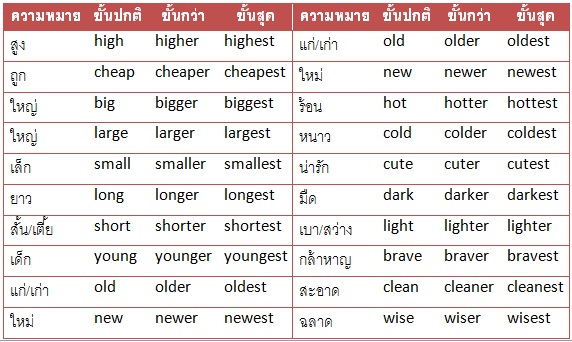

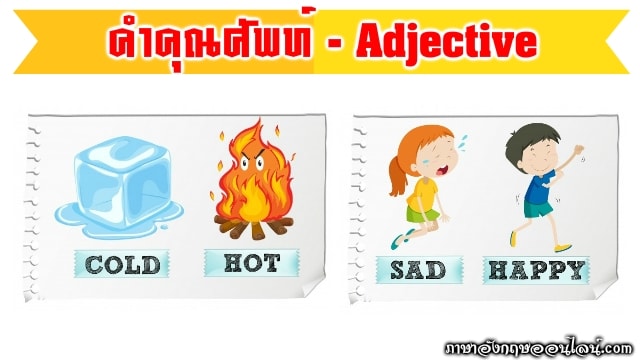

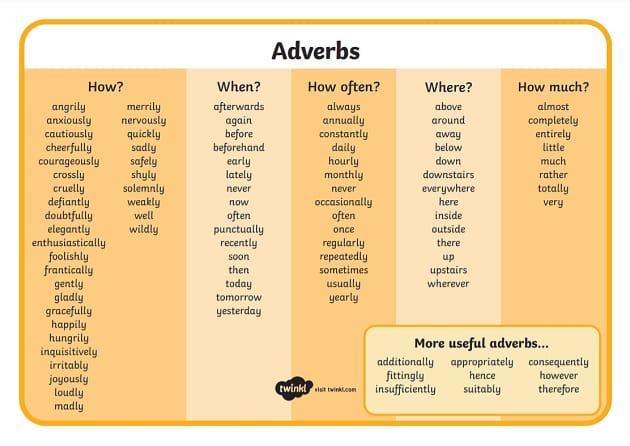

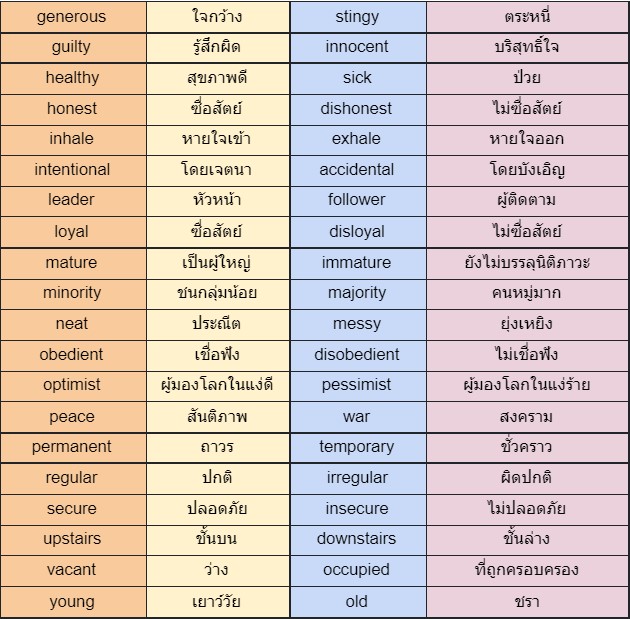

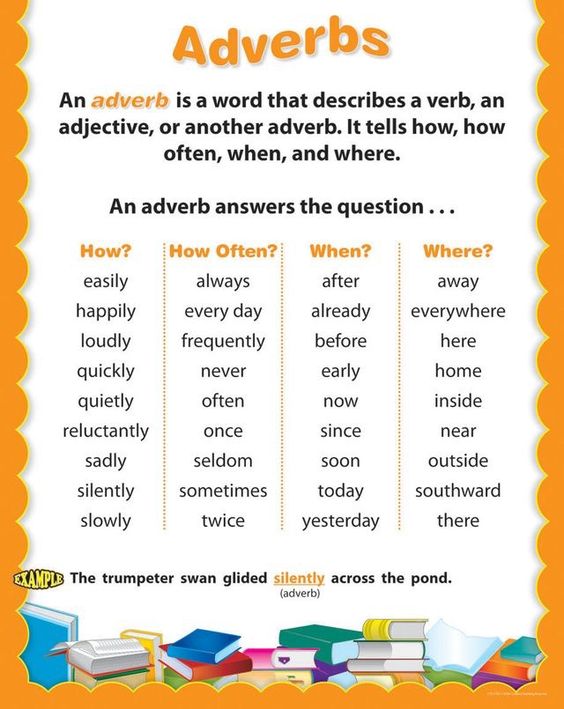

![คำคุณศัพท์แสดงความเป็นเจ้าของ Possessive adjective [การใช้ my his their Its] | ShortEng ภาษาอังกฤษอยู่รอบตัวเรา คำคุณศัพท์แสดงความเป็นเจ้าของ Possessive Adjective [การใช้ My His Their Its] | Shorteng ภาษาอังกฤษอยู่รอบตัวเรา](https://i0.wp.com/www.shorteng.com/wp-content/uploads/2016/07/%E0%B8%84%E0%B8%B3%E0%B8%84%E0%B8%B8%E0%B8%93%E0%B8%A8%E0%B8%B1%E0%B8%9E%E0%B8%97%E0%B9%8C%E0%B9%81%E0%B8%AA%E0%B8%94%E0%B8%87%E0%B8%84%E0%B8%A7%E0%B8%B2%E0%B8%A1%E0%B9%80%E0%B8%9B%E0%B9%87%E0%B8%99%E0%B9%80%E0%B8%88%E0%B9%89%E0%B8%B2%E0%B8%82%E0%B8%AD%E0%B8%87.png?resize=264%2C190)




![ท่องคำศัพท์ [REST] on Twitter: ท่องคำศัพท์ [Rest] On Twitter:](https://pbs.twimg.com/media/DX2RuWNVMAAVsIL.jpg)

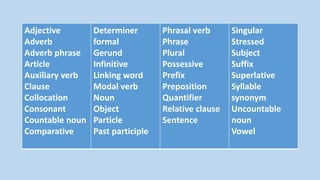
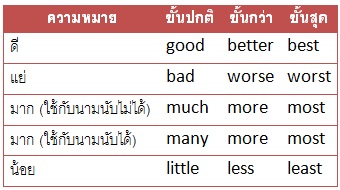


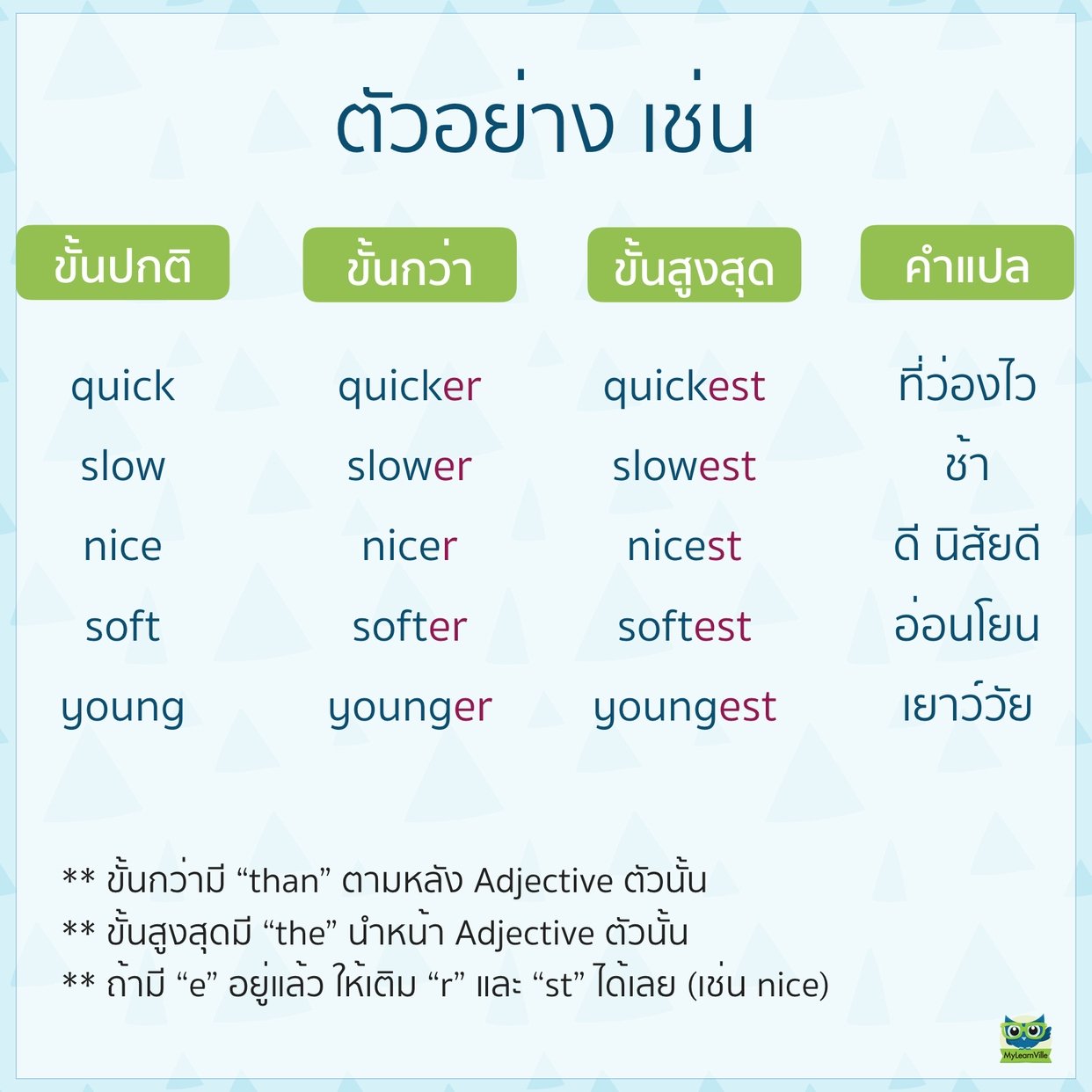



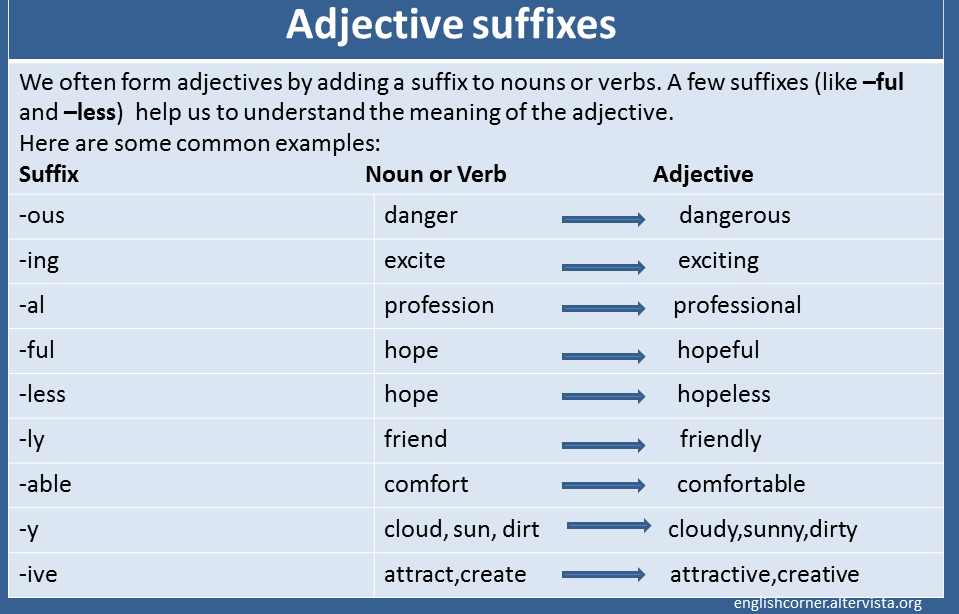

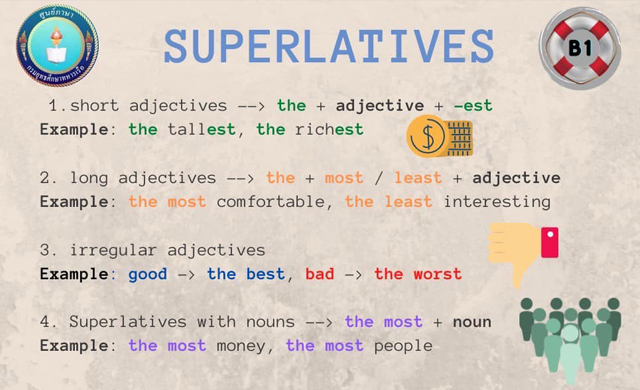


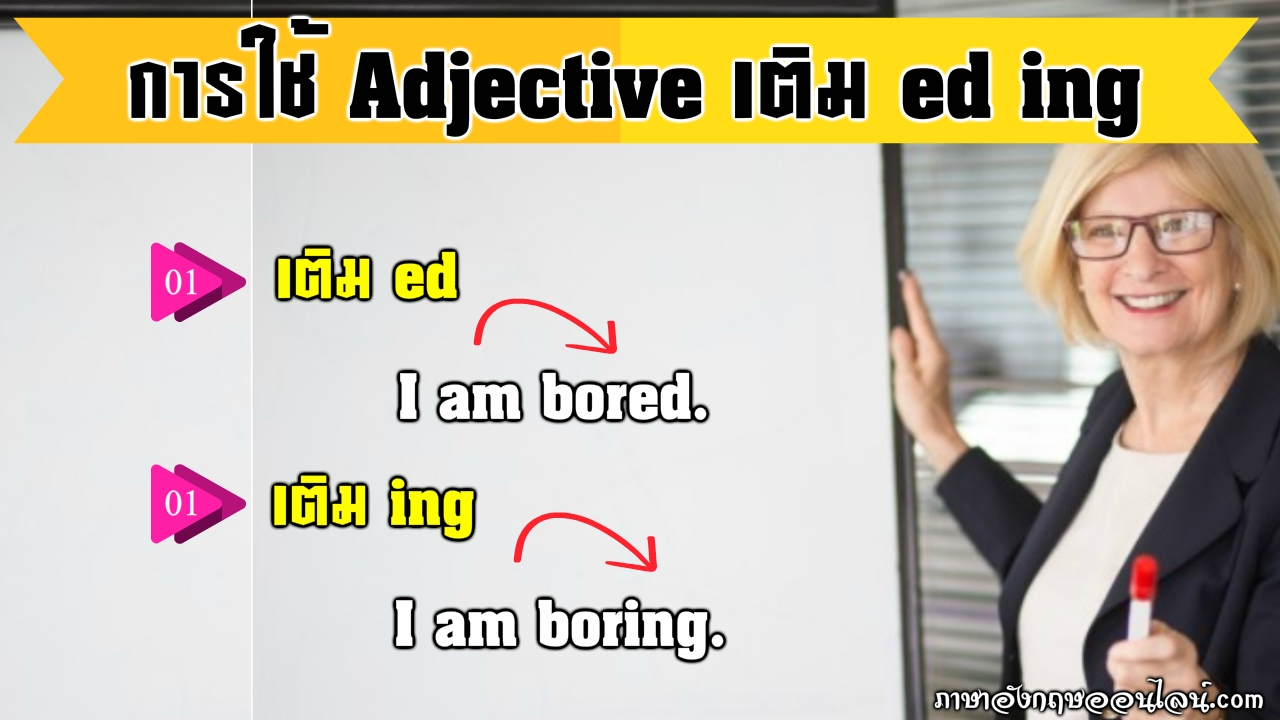
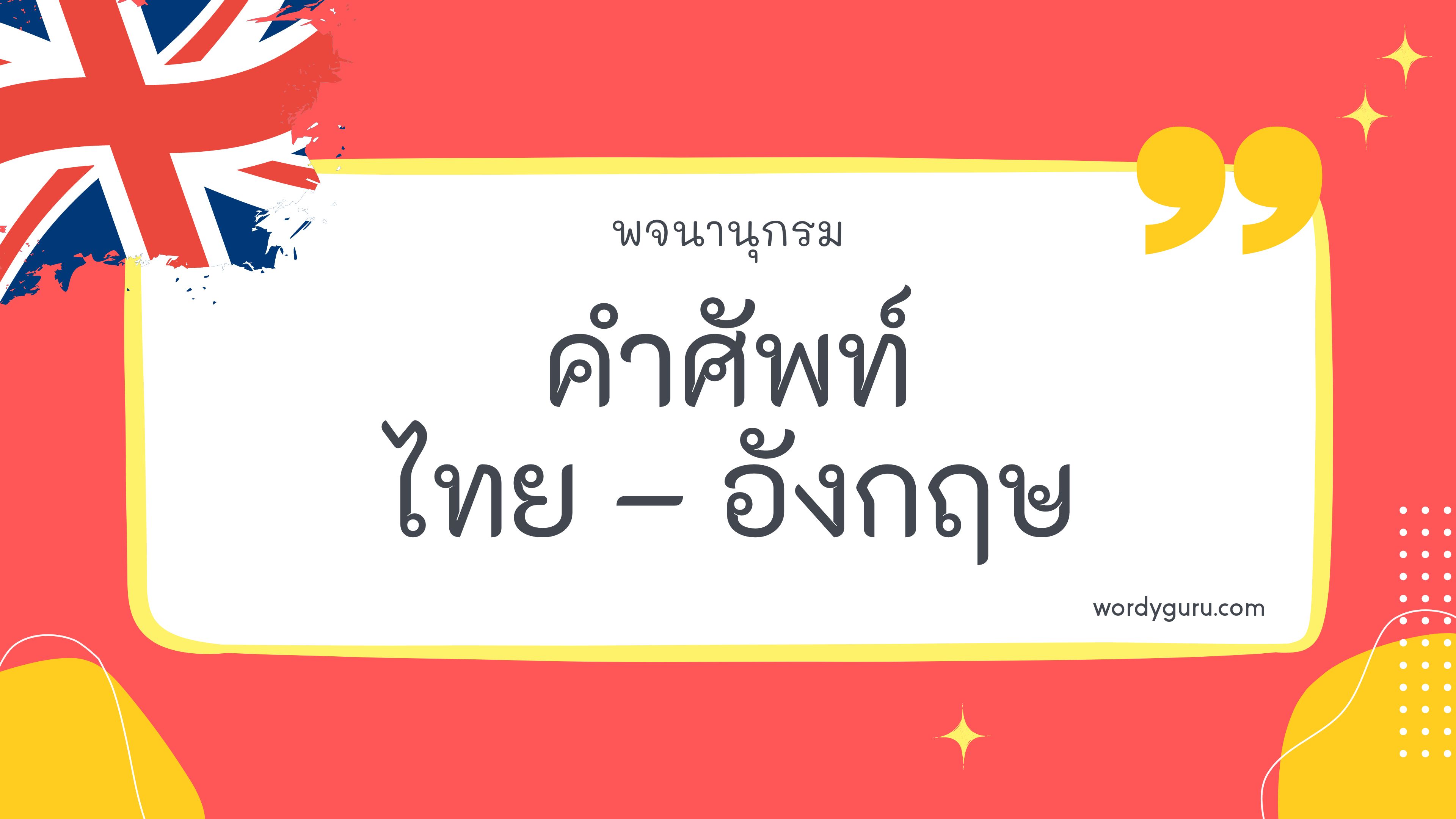
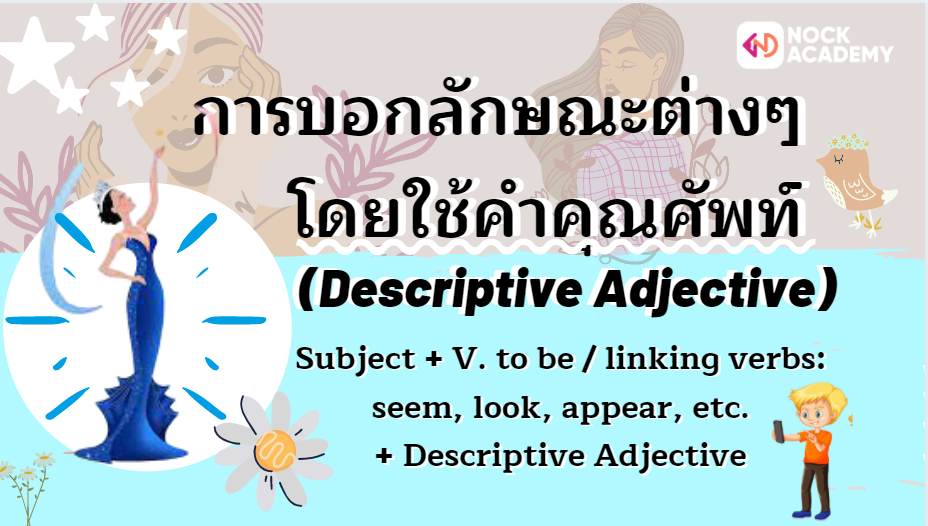

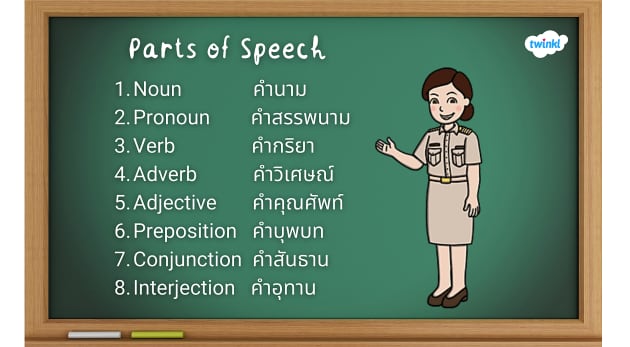


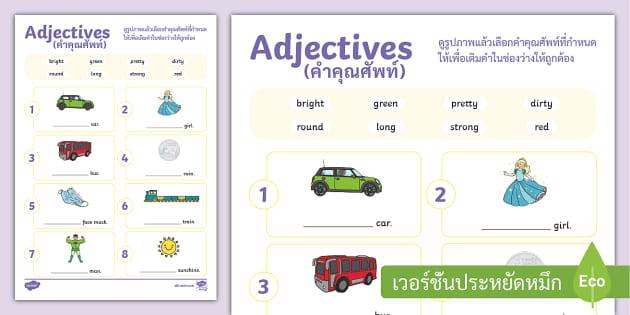
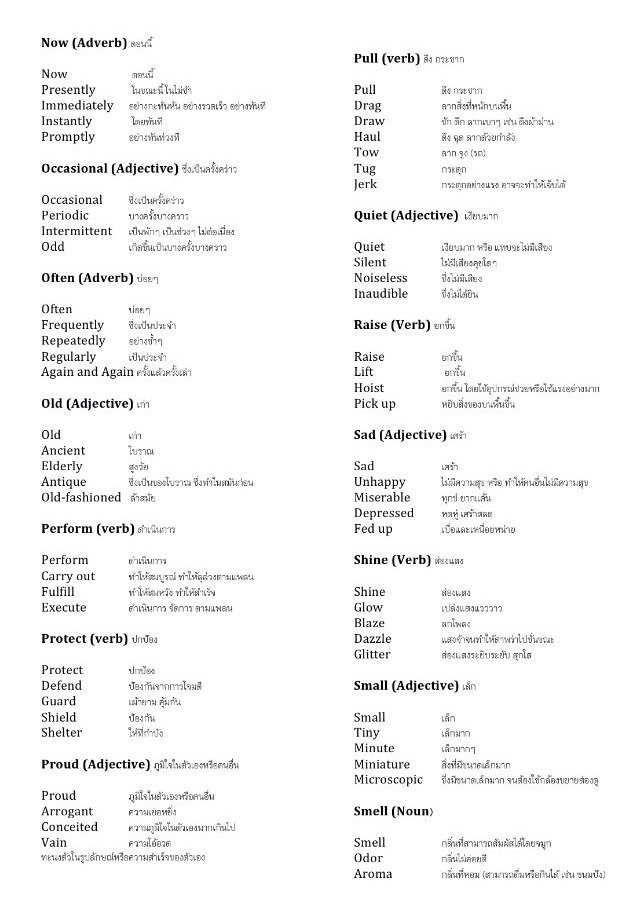
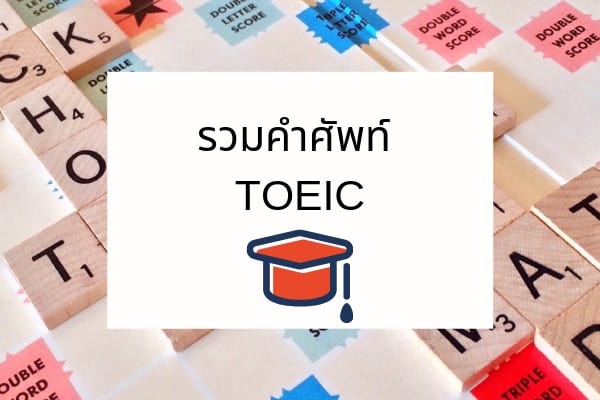

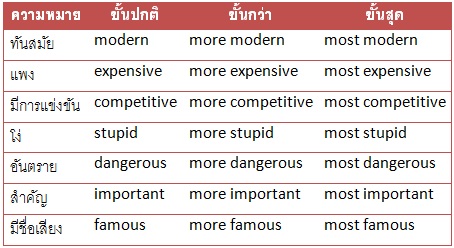

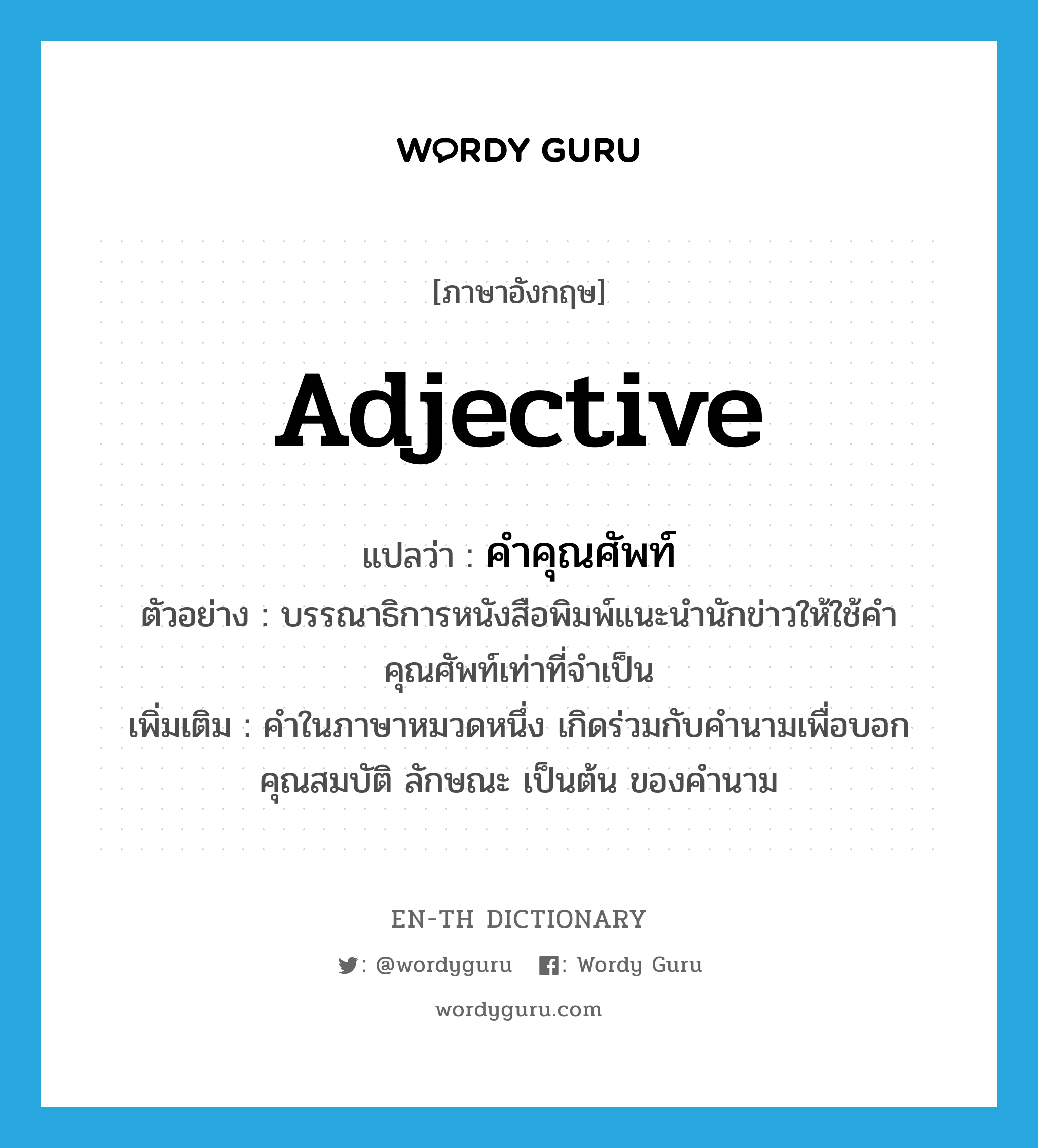


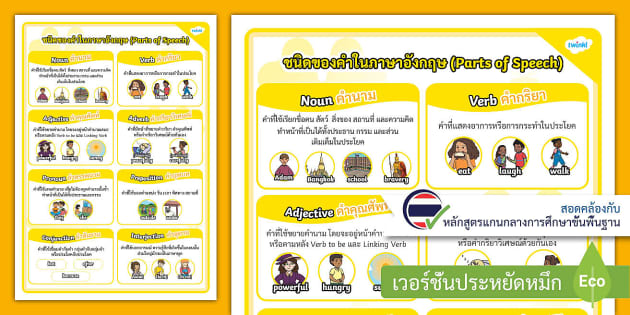
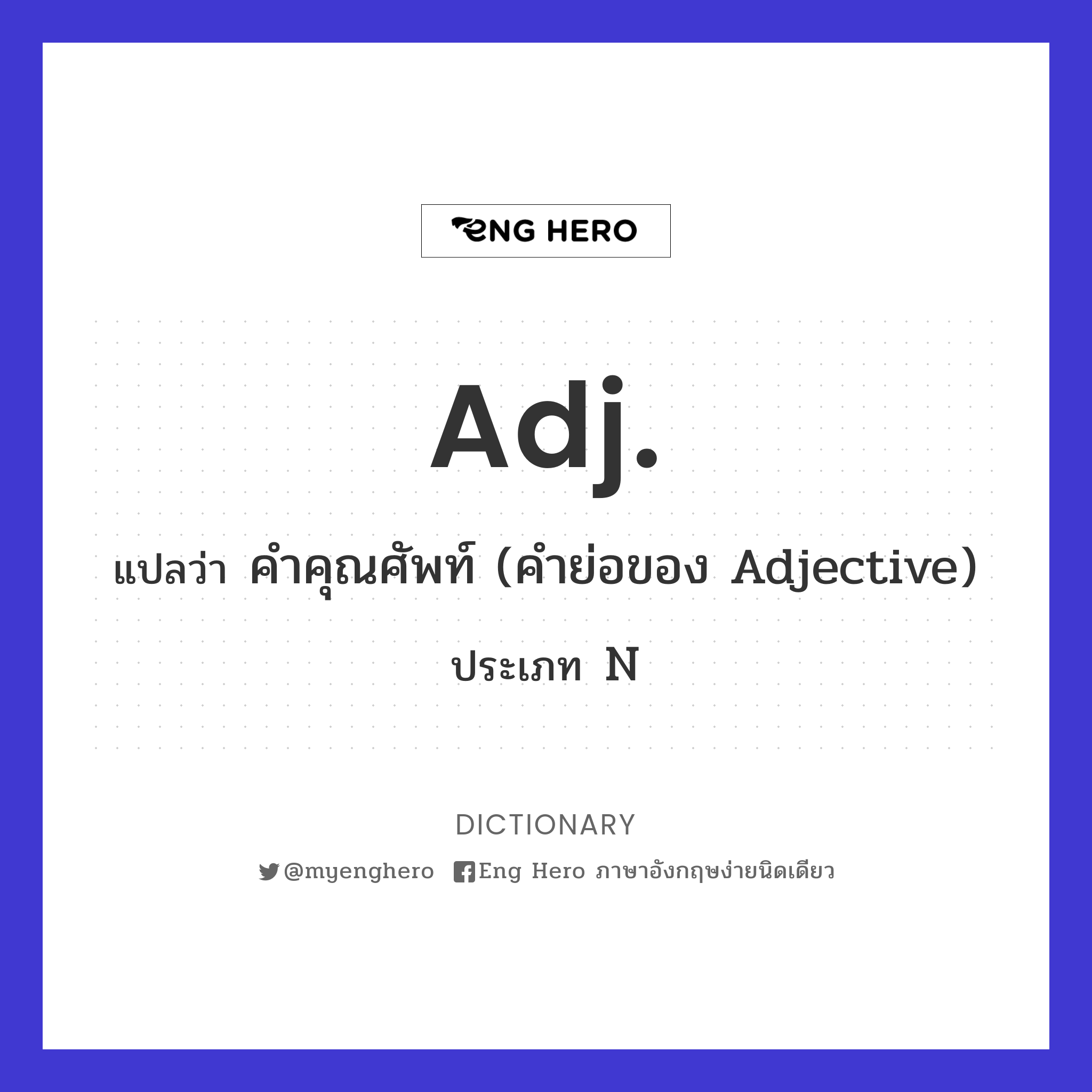


ลิงค์บทความ: คําศัพท์adjective.
ดูข้อมูลเพิ่มเติมเกี่ยวกับโพสต์หัวข้อนี้ คําศัพท์adjective.
- 100 Adjectives คำคุณศัพท์ 100 คำ | English by Chris
- Vocabulary: รวมศัพท์ Adjective (คำคุณศัพท์) พื้นฐานที่มีความ …
- ศัพท์ TOEIC พื้นฐาน 200 คำ Adjectives ที่ต้องรู้ก่อนสอบ!
- รวมศัพท์ (Adjectives) บอกบุคลิค&นิสัย – MyLearnVille
- ชนิดของคำคุณศัพท์ – Digital School Thailand 4.0
- Adjective คืออะไร รวมคำคุณศัพท์ภาษาอังกฤษที่ใช้บ่อยมี 120 คำ …
- รวมคำศัพท์ภาษาอังกฤษ Adjective 500 คำที่ใช้บ่อยที่สุด
- Adjectives – คำคุณศัพท์ – Langhub – เรียนภาษาอังกฤษ
- คำคุณศัพท์ (Adjectives) ที่สำคัญในภาษาอังกฤษ ‘ด้านอารมณ์ …
- แจก 120 คำคุณศัพท์ที่พบบ่อยและใช้บ่อยที่สุด
ดูเพิ่มเติม: https://phauthuatdoncam.net/tv-shows-a-z blog